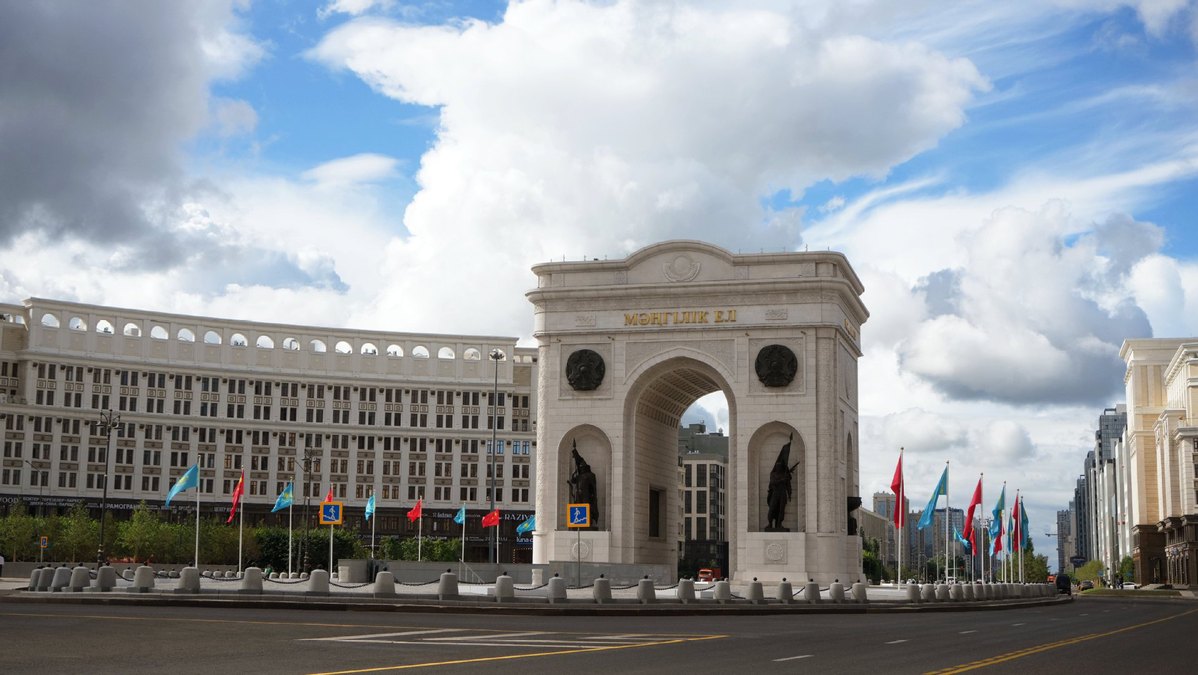
The 24th Meeting of the Council of Heads of State of the Shanghai Cooperation Organization in Astana, capital of Kazakhstan, on Wednesday and Thursday is set to further strengthen the pragmatic economic cooperation of the organization.
Leaders of not only SCO member states but also the observer states and dialogue partner countries will attend the summit, which is expected to produce some key initiatives aimed at reducing institutional trade and investment barriers to promote economic and trade cooperation, as well as some fruit documents on strengthening security collaboration and neighborhood relations featuring peace, stability and mutual trust.
READ MORE: Xi calls for opening new chapter in China-Kazakhstan relations
By incorporating major players on the world stage such as India and Pakistan, and Iran over the past few years, the SCO brings together a wide range of interests and perspectives. The extended SCO family is spread across Asia, Africa and Europe, encompassing half of the world's population and accounting for about one-fourth of the global GDP.
Belarus is expected to join the SCO as its 10th member at the Astana summit, testifying to its continuing appeal and diverse geopolitical composition and its strategic depth. The SCO has developed from an initial regional security organization into a platform promoting economic, security and cultural exchanges and cooperation. The SCO's strong internal cohesion and robust development momentum are conducive to putting the organization in a better position to effectively address risks, improve its global influence and do its part to help resolve hotspot issues.
Facing the complex world situation and development environment, all the SCO member states should adhere to the principles of the Shanghai Spirit, further solidify and strengthen their cooperation and coordination to safeguard their common interests, respond to various challenges, and defend fairness and justice.
Under the guidance of the heads of state diplomacy, China has played a crucial role in deepening high-level political mutual trust among the SCO member states, which is of great significance to improving the regional and global governance system.
Summarizing the successful experience of the SCO, Chinese President Xi Jinping has highlighted the members adhering to political mutual trust, adhering to mutually beneficial cooperation, adhering to equal treatment, adhering to openness and inclusiveness, and adhering to fairness and justice. These are not only a vivid embodiment of the Shanghai Spirit, but also a solid guarantee for building an SCO community with a shared future.
That being said, the SCO member states should strive to give greater impetus to their cooperative momentum, and take advantage of the Astana summit to further align their efforts to strengthen policy coordination and the docking of their respective development strategies, actively deepening their mutually beneficial cooperation in trade, transportation, energy, agriculture, science and technology, education, culture and other fields.
ALSO READ: At the very heart of its name, cooperation is the defining hallmark of the SCO
After the Astana summit, China will assume the rotating presidency of the SCO for 2024-25, seven years since it last had the chair. The country has said that it stands ready to work with all parties to follow the Shanghai Spirit and advance the high-quality development of the SCO and build a closer SCO community with a shared future, so as to bring more benefits to the people in the region and contribute more to lasting peace and common prosperity in the world.
The SCO has now become a fine example of a new type of international relations and regional cooperation. In the process, the organization has become an important constructive force in maintaining regional security and development and international fairness and justice.
With the summit in Astana expected to produce new advances in cooperation in areas such as technological and digital innovation, new initiatives on climate change and sustainable development, as well as strengthened cultural and educational exchanges, the vitality and unity the SCO has displayed since its founding in 2001 will continue to be carried forward.


